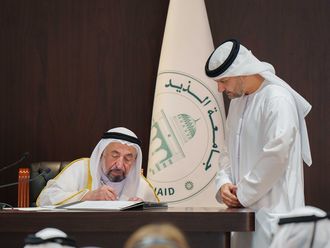Dubai: GCC nationals' purchases of luxury items are heavily influenced by those of their family and friends, University of Wollongong in Dubai (UOWD) student research has revealed.
However, Levantine Arabs' purchases are swayed more by celebrity culture and television product placements, showed the findings of a joint undergraduate and postgraduate marketing project.
Students at UOWD came together to investigate the various UAE demographics' spending habits on luxury items, which included Emirati, expatriate Arab, European and Indian residents. The project culminated in presentations to executives of luxury car maker Audi Arabia.
"Every year we try to get a company to come in and work with the students on a real-life corporate problem based in the Middle East, for the students to apply what they've learned so far," said Dr Melodina Balakrishnan, Project leader. "Audi came to us wanting insight on how to make it an aspirational brand as it is not necessarily the first choice in the UAE," added the Deputy Dean for the Faculty of Business Management.
By aspirational brand, Dr Balakrishnan refers to the Ferraris and Porches of this world that "some day" we all wish to own.
Hitches and glitches
The UAE's various demographics were split up and allocated to the six different student groups. The undergraduates focused on the youth of a certain demographic while the postgraduates targeted the 30-plus age range — those with purchasing power.
Although the spending habits of the various demographics differed, in general the gender differences were the same across the board.
"The students found that men generally looked at aspects like speed and engine sound in a car they would buy, while women looked at the luxuries and sleekness," said Dr Balakrishnan.
Each of the six groups surveyed on average around 50 people, however their information gathering methods differed and at times were somewhat challenging.
"One of the main challenges some students had was the collection of data as it's very hard to do this in the UAE," said Dr Balakrishnan. "One student had his questionnaires confiscated in the shopping mall."
The winning undergraduate team used surveys, focus groups, interviews and observational research to gather almost 200 pages of data from a group of 50 people in four months. "We could have really easily come up with a 600 page report," said Badr Al Lawati, who landed an internship with Audi Arabia after the project. "It was very hard to choose what to put in the report and presentation and what to leave out."












